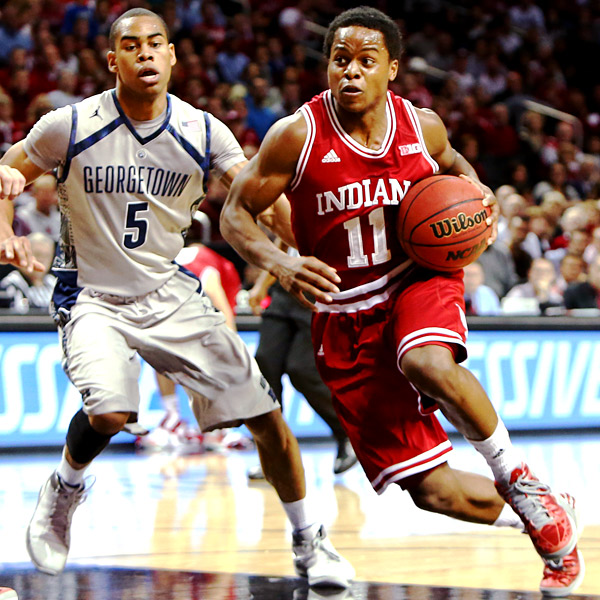Expectations on Sophomore Big Ten Stars Should Be Tempered
Posted by Jonathan Batuello on October 29th, 2013This year’s sophomore class in the Big Ten includes a number of players who will have huge roles on their respective teams. Some are stepping into roles involving greater expectations, such as Yogi Ferrell at Indiana and Glenn Robinson III at Michigan, due to players leaving for graduation or the NBA. Others have a good bit of talent returning around them, like in the cases of Gary Harris at Michigan State and AJ Hammons at Purdue, and they will try to meld their skills into the team concept as they help their teams compete. There’s a common assumption that freshman college basketball players will make a “jump” in their learning curves between their first and second years in a program, but there’s a lot of dispute over just what that jump actually entails.
How big of a jump can a team expect from players who already produced plenty as freshmen? The best way to analyze this would be to look at all Big Ten freshmen’s changes in their statistical profiles from their first to second years, but without going overboard with too much analysis on this, it makes just as much sense to review the all-Big Ten Freshman teams. As you can see below on the attached Excel sheet (click through to open the entire document), the devil is in the details. For freshmen who already substantially produced in their first collegiate year, the “jump” that we were expecting doesn’t really show up during their sophomore seasons.
All-B1G Freshman to Sophomore Stats
Increases in production are minimal from these players: an addition of less than one point per game, less than half an assist and less than a third of a rebound. In terms of shooting percentages, there is a notable decrease both overall and from the three-point line. For teams like Indiana and Michigan that are expecting big bumps from their returnees playing larger roles, these trends could be a sign of worry. In terms of points production, no single player had a greater than four-point per game increase and only four out of the 21 who stayed for their sophomore seasons saw an increase of more than two points per game.










































